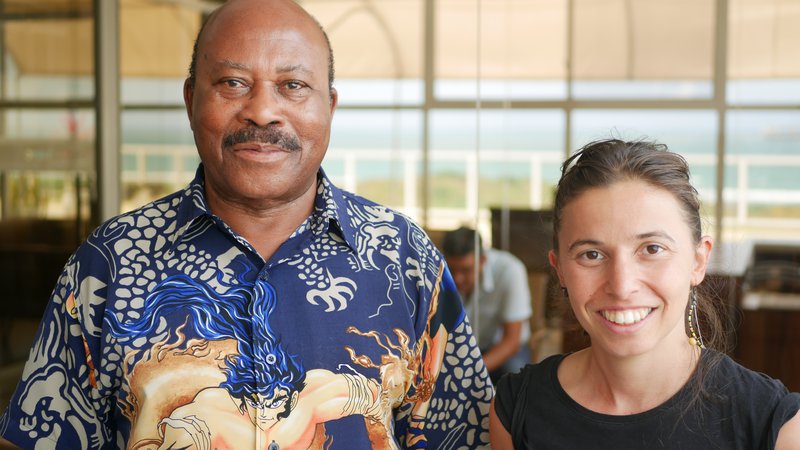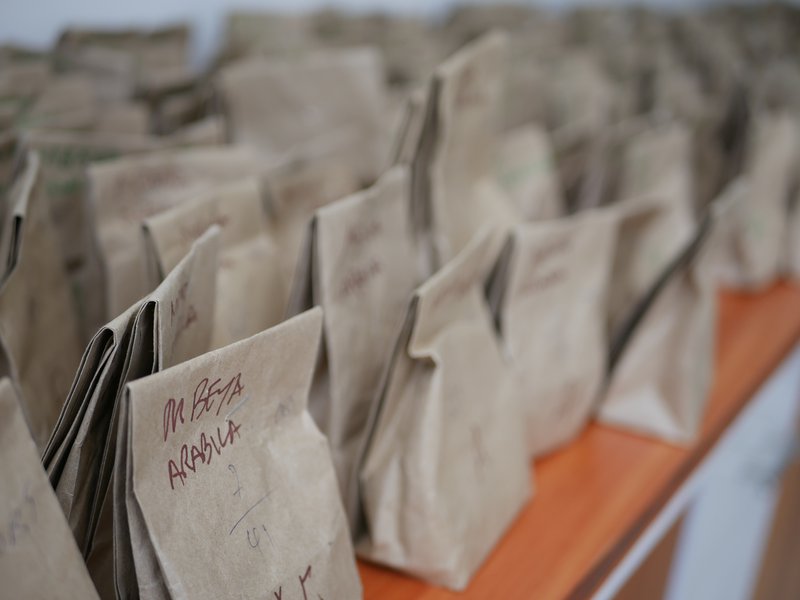Coffee industry in Tanzania : How does it work?

Second visit while we stay in Dar es salaam - Orbit Coffee Limited
This day we're meeting Mr Leslie Omari, one of the co-founder of the company. Mr Omari shares with us a part of its long experience and knowledge of the coffee industry in Tanzania.
As ex General Director of the Tanzanian Coffee Board, he has contributed to the development of the coffee both at national and international level. He explained us indeed that together with a group of other coffee professionals from Africa, he initiated the AFCA - African Fine Coffee Association - to reinforce the collaboration of African producing countries and improve their reach on the international market.
At national level, he also explains us a bit more the functioning of the public auctions and cooperatives.
Around 90% of the farmers are organised in cooperatives - such as the Kilimanjaro Cooperative (the first one historically), the Arusha Cooperative, Moshi Cooperative, etc. They are agricultural and marketing cooperatives. As such, they deal with the production, processing, transport and marketing of the coffee.
Then, approximately 10% of the coffee is produced by private estates with a bigger surface and a larger capacity of production. These farmers have a full control of the process and thus of the quality of their product. They can also offer a full traceability which makes a critical difference on the specialty market.
As we've explained before, under the current regulation all the coffee produced in the country has to be sold through public auctions in Moshi.
The Tanzania Coffee Board receives the coffees and sends to buyers a catalogue of the available products classified by grade (size, density, weight - AAA, AA, AB, PB, A, B, AF, C, E, F, UG, TT, TEX ; no organoleptic profile though), producer/cooperative and available quantities (per bags of 50kg).
The auction stands every week on Thursday. Buyers bid on the coffee they wish to buy. The farmers can attend the auction seeing who is buying their coffee and at what price. It is a transparent system.
Some farmers who have been used to work in direct trade, selling their coffee directly to exporters or international buyers, have shown their concerns under the new system. For their clients indeed, the origin and the constant quality of the coffee is a crucial issue. In order to be able to carry on with their marketing strategy, they found an ingenious alter: buying their own coffee at auctions and resell it to their clients, exporters, importers or roasters.
Ingenious indeed, but not optimal. First of all they will have to bear the price of the purchase, or at least find an agreement with their clients to make an advance on the final price of purchase. That price may be uncertain as under auction systems other buyers may intend to bid on the same lot.
Moreover, the delivery of the coffee to its final destination will take more time. One can think of at least a few weeks more since the lot would have to be delivered to the board, offered at auctions, bought, paid under 7 days to the Board and finally prepared for export.
Once the money is received by the Board it is supposed to be paid to cooperatives within 3 days and then within 30 days to the farmers, at the very end of the value chain.
Therefore, farmers, buyers and institutions are currently all under pressure and have to face complex issues to ensure the good development of the coffee industry : a better productivity, better quality, better incomes - at national and international level. under the current political context, dialogue and collaboration between the different protagonists seems necessary to find the best suitable solution.


 Tanzania
Tanzania Colombia
Colombia Ethiopia
Ethiopia Guatemala
Guatemala Indonesia
Indonesia Kenya
Kenya Mexico
Mexico Philippines
Philippines Uganda
Uganda